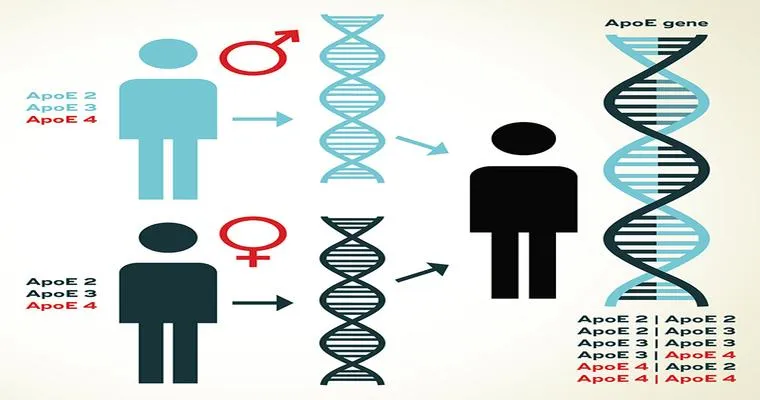If you have a parent diagnosed with "Alzheimer's disease", you may be wondering about your own risk of developing this condition. The relationship between genetics and Alzheimer's is complex, and many individuals fear that they will "inherit" this disease from their parents. In this article, we will explore the genetic factors associated with Alzheimer's, the role of family history, and what you can do to manage your risk.
Alzheimer's disease is primarily known as a "progressive neurodegenerative disorder" that affects memory, thinking, and behavior. While having a parent with Alzheimer's does increase your risk, it is essential to understand that the condition is not purely hereditary. The genetic factors involved can be broken down into two categories: "early-onset familial Alzheimer's disease" and sporadic Alzheimer's disease.
Early-onset familial Alzheimer's disease is a rare form of the disease that typically occurs in individuals under the age of 65. This form is often linked to specific genetic mutations, and if you inherit one of these mutations, your risk of developing the disease is significantly higher. However, this accounts for only a small percentage of Alzheimer's cases.
The more common type is sporadic Alzheimer's disease, which does not have a clear genetic link. In this case, while having a parent with Alzheimer's can increase your risk, it does not guarantee that you will develop the disease. Factors such as lifestyle, environment, and overall health also play a critical role in determining your risk.
Research indicates that individuals with a family history of Alzheimer's may carry certain genetic markers, such as the "APOE ε4 allele", which can increase susceptibility to the disease. However, not everyone with this allele will develop Alzheimer's, and many people without it still do. This uncertainty highlights the importance of considering a combination of genetic and non-genetic factors when assessing your risk.
If you are concerned about your risk of developing Alzheimer's disease, there are several proactive steps you can take. Engaging in regular physical exercise, maintaining a balanced diet, staying socially active, and participating in cognitive training can all contribute to brain health. Additionally, managing cardiovascular health and reducing stress can also play a significant role.
In conclusion, while having a parent with Alzheimer's may increase your risk, it does not guarantee that you will inherit the disease. Understanding the complex interplay of genetic and environmental factors can empower you to take action and reduce your risk. If you have specific concerns about your genetic risk for Alzheimer's, consider consulting with a genetic counselor or a healthcare professional who specializes in this area. Your health is important, and being informed is the first step toward a proactive approach to brain health.





